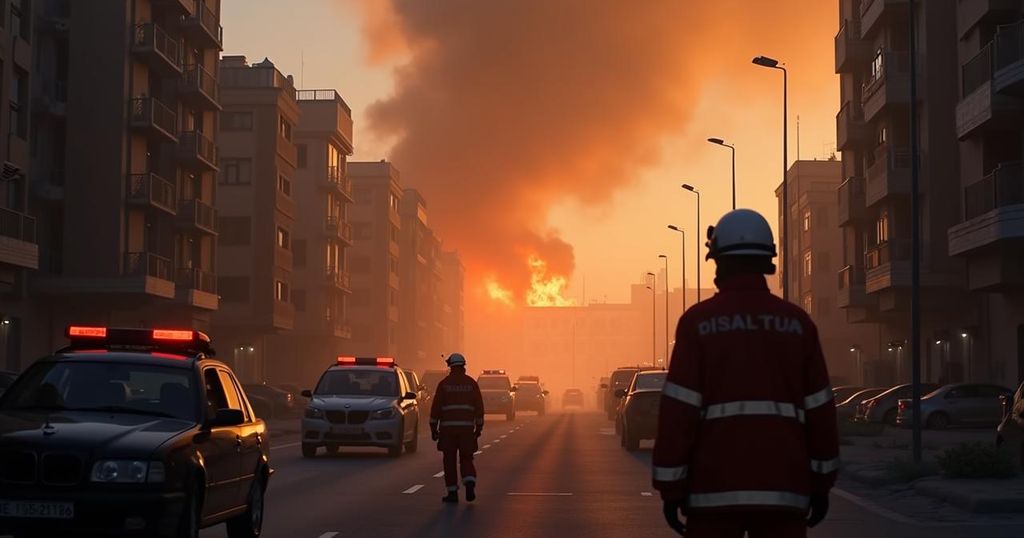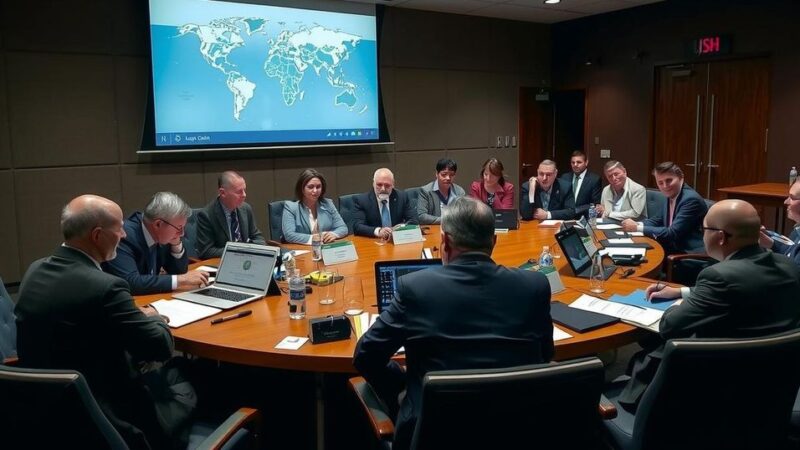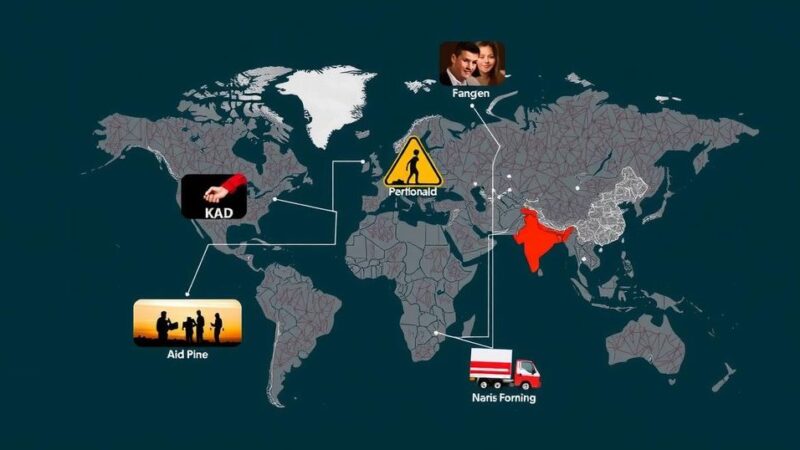Israeli air strikes on central Beirut resulted in at least six fatalities, amid a broader wave of violence in Lebanon that has claimed 46 lives in 24 hours. As tensions escalated, the UN Security Council met to discuss the crisis, calling for urgent de-escalation. The situation remains precarious, with ongoing explosions reported throughout the city.
In a significant escalation of violence, Israeli air strikes targeting central Beirut resulted in the deaths of at least six individuals, according to reports from the Health Ministry. This recent attack comes in the wake of a broader conflict in Lebanon, where 46 fatalities have been recorded across the country in the past 24 hours alone. The escalation prompted an emergency session of the United Nations Security Council, during which Secretary-General António Guterres underscored the urgent need for de-escalation. During the three-hour meeting, both Iran and Israel defended their actions amid mounting tensions. Lebanon reiterated its call for the enforcement of a UN Security Council resolution from 2006, which demanded a demilitarized buffer zone in the southern region of the country. In a pointed remark, Israel’s Foreign Minister labeled Secretary-General Guterres as persona non grata, barring him from entering Israel, and accused him of favoritism towards Hezbollah, Hamas, and Iran. While Guterres did not directly respond to this ban, his spokesperson addressed the matter publicly. The devastation caused by the latest Israeli strikes on Beirut intensified as Al Jazeera’s correspondent in the capital reported an increased death toll rising to six, following the fatal injuries of several individuals in hospitals. Laura Khan from Al Jazeera reported, “We know so far there have been six fatalities,” confirming the ongoing humanitarian crisis in the region. Additionally, the severity of the conflict in the Middle East was highlighted by Secretary-General Guterres, who remarked that current tensions are rapidly escalating into a dire situation: “Raging fires of conflict in the Middle East region are fast becoming an inferno.” Witnesses noted the frequency of the attacks, describing how explosions disrupted the city throughout the night, with significant blasts reported around midnight local time from the Bashoura area. The Ministry of Public Health indicated that as many as eight individuals were hospitalized for injuries sustained during the strikes. Central Beirut has previously experienced hostilities, marking this as only the second major incident within a year of ongoing confrontations between Hezbollah and Israeli forces. Al Jazeera continues to monitor the unfolding situation closely, providing live updates and coverage as developments arise in this complex and precarious conflict.
The unfolding violence between Israel and Hezbollah in Lebanon represents a continuation of long-standing hostilities in the region. Recent air strikes have exacerbated an already fragile situation, contributing to a humanitarian crisis marked by rising casualties and the destruction of infrastructure. The international community, particularly through the United Nations, is increasingly concerned about the potential for further escalation. The 2006 UN resolution aiming to establish a demilitarized zone in southern Lebanon remains unimplemented, reflecting the challenges of addressing persistent conflicts in the area. The current surge in violence poses significant risks not only for those directly affected but also for regional stability.
In conclusion, the situation in Beirut and across Lebanon has reached alarming levels, with the latest Israeli air strikes claiming multiple lives and contributing to a rising death toll throughout the country. The international response, particularly from the United Nations, highlights the urgent need for de-escalation and renewed diplomatic efforts to address the complex conflict. As tensions escalate, the potential for broader regional implications remains a critical concern, necessitating immediate action to prevent further loss of life and destruction.
Original Source: www.aljazeera.com






